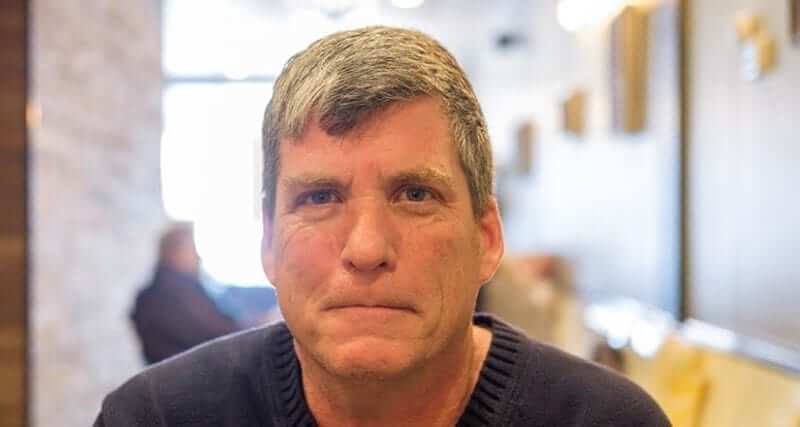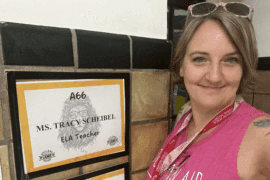Teachers of New Jersey: William Pyper Trenton High School AP History, US II History, and AP Government
“When I first started teaching, some of the kids would be graduating in the top 10 of their class, but then I would find out that they were failing out of college. At that time we only taught AP Calculus and AP English. So I sought for the school to get more AP classes, and now we have ten AP classes.
There is a dichotomy to the experience of working in Trenton. A lot of the kids I work with in my AP classes are going off to Ivy League schools, but they need a lot of assistance on getting help with financial aid. But I also have taught kids who have gone on and been convicted of murder, too. But these kids are people just like anyone else.
I really get very close with my students. For example, with my Class of 2012 students, I was the class advisor; I taught nine of them how to drive, and currently five of them are now teachers. One is teaching in Trenton, another one in Camden, and still another one in Newark.
There are more obstacles to overcome for the kids who come from Trenton. When you have a kid whose parents never went to college, and they have no idea how to fill out a financial aid form, then they need a lot of outside help. One group that is facing a lot of challenges in particular is the DACA kids. They are the Dreamers, the kids who came over illegally when they were young, brought over by their parents. But because they have a lack of documentation it is very difficult to get them financial aid. I have a kid right now: his SAT scores are great, but his mother is illegal, and he is illegal. He came over when he was seven. He is such a great kid, everything you would want as a citizen in this country, but it is very difficult dealing with his financial aid application.
I have another girl who was class of 2015, she is graduating from Princeton. She was our valedictorian; they did give her all of the money she needed for college, but that was rare. Princeton had enough money to give to a qualified student like her.
But a lot of kids live in silence and fear, being [as] they are not citizens. To think that about the six-year-olds coming over—they didn’t break a law, their parents did. These are often the kids you want in your society. They are some of the best kids in our school. The group of our ESL [students] and our immigrant population often has the best test scores and are so well-behaved. There are new laws that Governor Murphy is passing on the ins and outs on helping DACA kids. I am going to be meeting with one kid next week and helping him with his application process and financial aid.
Right now it is more Central America where we are getting our kids from. That is a group that plows forward and works hard. I wish the obstacles for them to succeed in this country were removed.
I had a kid: she was our salutatorian last year. Her mother had her when she was only 15, a hard-working woman, but didn’t know how to help her daughter with the college process. She wanted to go to Muhlenberg College, and we helped her. In January, she showed up with her report card with a 3.8 GPA. She is doing so well.
Another student from a few years ago, on her 17th birthday, gave me a call and told me that her mother had just been busted for drugs and prostitution, and went to jail. Another teacher, a colleague, along with her husband, took the student in, and the student went on to Brown University, and now is teaching, herself.
One of my greatest compliments was from a student who went to college for Criminal Justice. After he graduated we went out for dinner, and he told me he worked harder in my and one other teacher’s class than he ever did at Rutgers. And I felt that was a compliment. I want to prepare the kids for college, and to be successful beyond high school.”
Interview and photo by Gregory Andrus
You can find his work at Portraits of the Jersey Shore on Facebook, Instagram and www.portraitsofthejerseyshore.com





